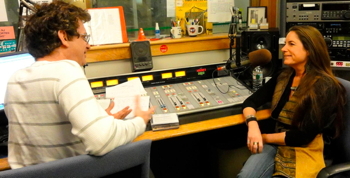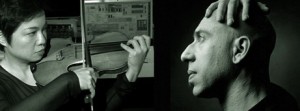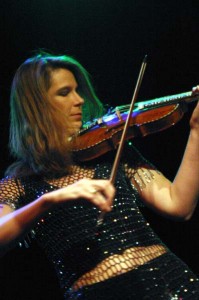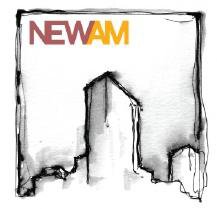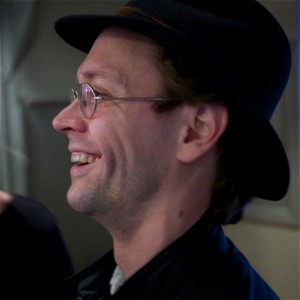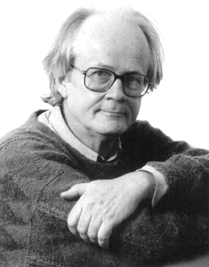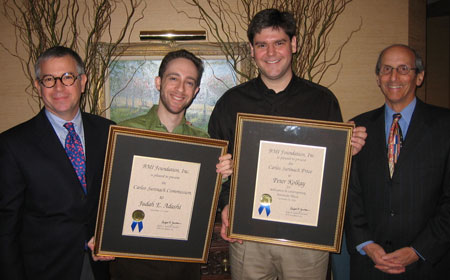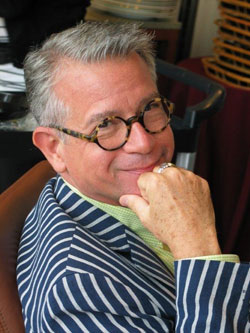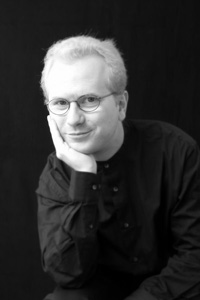 Long a fixture here at S21 until just a few years ago, composer David Salvage has been busy teaching at Hampden-Sydney College in Virginia. Back in 2010 he conceived the idea of keeping his compositional chops up by starting an open-ended series of piano pieces, called Albumleaves. At the same time David started a blog as an integral part to showcase them, in which each new piece features not only the score but a recorded performance as well. The series is now pushing 90 pieces (!), and some of them have just come out on a recording on the Navona label. It’s an elegant, smartly realized project, and I asked David to give a little recap and backgroud on how it came to be, and what it’s meant to him:
Long a fixture here at S21 until just a few years ago, composer David Salvage has been busy teaching at Hampden-Sydney College in Virginia. Back in 2010 he conceived the idea of keeping his compositional chops up by starting an open-ended series of piano pieces, called Albumleaves. At the same time David started a blog as an integral part to showcase them, in which each new piece features not only the score but a recorded performance as well. The series is now pushing 90 pieces (!), and some of them have just come out on a recording on the Navona label. It’s an elegant, smartly realized project, and I asked David to give a little recap and backgroud on how it came to be, and what it’s meant to him:
I wanted to write a lot of music; I wanted to play the piano more. And I wanted to write a blog. I figured out how to put these desires together in January 2010, when the idea occurred to me to start a blog that would consist of posts that would be musical instead of verbal, and that would nonetheless reflect the offhand, freewheeling, and autobiographical character of conventional blogs. And now that I had a piano in my home for the first time in twelve years, I was especially fired up to get the project going. The next month, I came up with the title Albumleaves, and, in late March, I began composing the “leaves,” as I thought I’d nickname the posts.
I thought that in order to maintain the blog-like nature of the site the posts would have to be written quickly and manifest a high degree of musical variety. Initially, my goal was to write three leaves every two weeks. While I was only able to maintain this rate for a month or two, the pace of composition remains rapid: in the 139 weeks since beginning Albumleaves, I have completed 89 leaves, which is more than one leaf every two weeks (and there is both an 81a and 81b). As for musical variety, click here, here, and here to hear for yourself. By maintaining variety, the blog remains casual, surprising, and attractive to listeners—and full of fresh challenges for me.
The original vision for the site always went beyond original composition. Since 2010, I’ve been posting recordings of music by other composers—like Federico Mompou—and quotations about music by authors like E.M. Cioran. More recently, I’ve started excerpting from free improvisations that I record and posting them as improvisation fragments.
Over time, I’ve grown more confident about the project’s integrity. Since I listen to such a wide variety of classical music (from Notre Dame organum to twentieth-century atonality with few gaps in between), I’m not concerned by my reluctance to develop a personal style of composition. Writing good pieces is challenge enough for me at the moment; if they do not synthesize their disparate influences into a unique musical voice, I’m not going to worry about it. Nor do I worry anymore about inconsistency of quality: even the greatest composers (and authors and painters and everyone else) produced works of varying quality. And I don’t see how writing quickly or slowly has anything to do with consistency: some of the strongest leaves were written in two hours; some of the weakest took weeks. (And even though it took him much less time to write, Brahms’s second symphony is just as good as his first.) For now, the quality of my playing troubles me more than the quality of my composing: I admit to posting a few sloppy recordings. (Here’s one.) But hopefully the music always comes through anyway.
I am proud of the nine lucky leaves that made it to market on the new CD Lock and Key; they are representative of the site, and I thank Navona Records for their enthusiasm and interest. I also would like to thank the 2,404 unique visitors from 75 countries who have visited the site to listen—though surely it’s not for purely musical reasons that the most popular leaf remains “Manatee.” Happy listening, everyone, and see you at Albumleaf 100!
